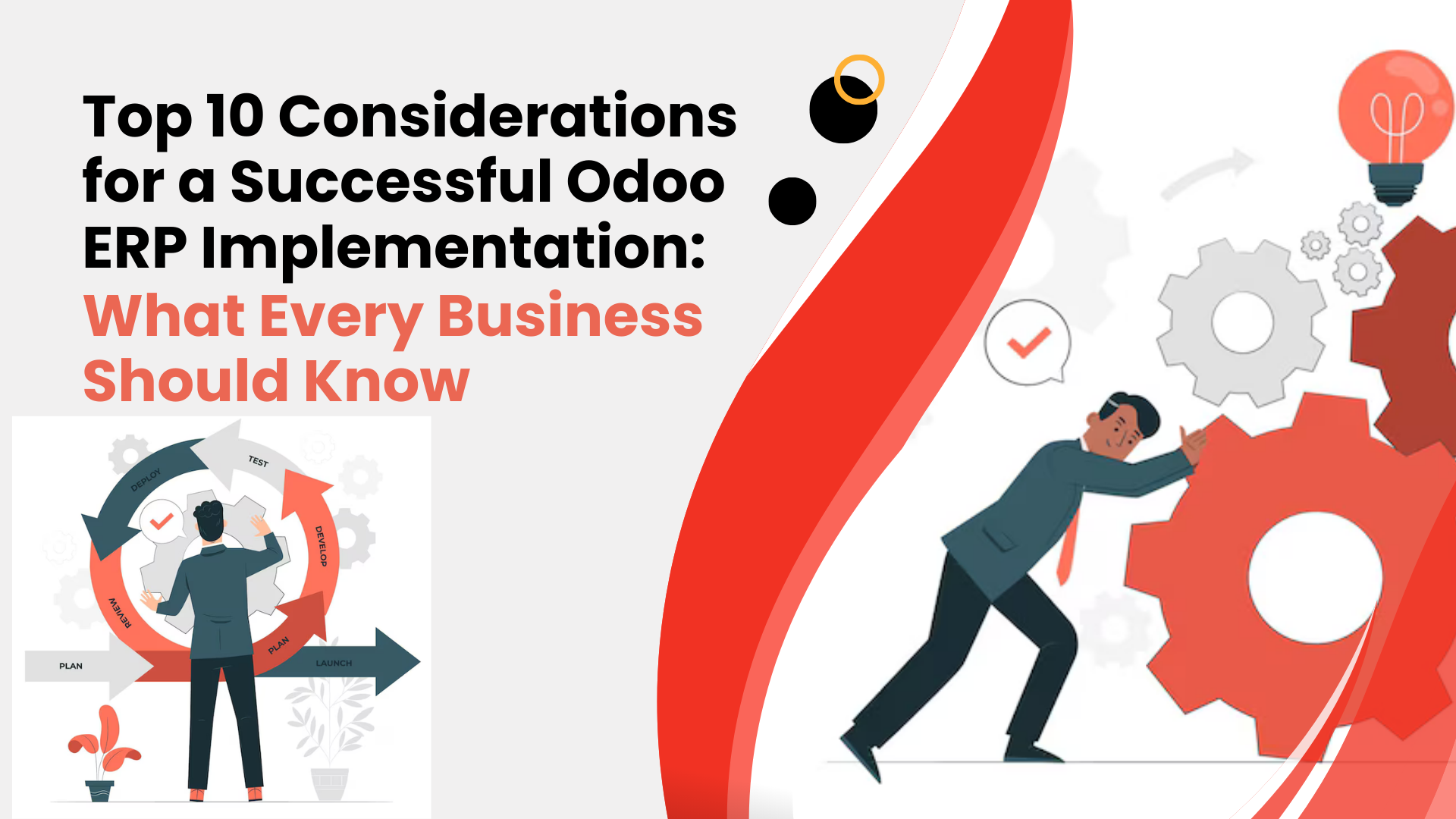A business that is considering installing an ERP system should realize its importance, as it would help in the creation of increased efficiency, streamlined processes, and better decision-making. Amongst the many ERP options available, Odoo is one that stands out due to its power, flexibility, and cost-effectiveness. However, careful planning and execution are required to get the full benefit of Odoo. In this blog, we’ll explore the top 10 considerations you should keep in mind to ensure a successful Odoo ERP implementation.
1. Define Clear Business Goals
Before delving into the technical part of Odoo ERP implementation, it’s crucial to have a clear understanding of your business goals. It is important to know what your business goals are. What do you want with this new system? It could be improved inventory control, better customer service, or optimizing financial operations; aligning specific business objectives with your Odoo implementation process will guide you towards success.
2. Choose the Right Odoo Modules
Odoo offers hundreds of modules that can be used for various aspects of your business, including sales, inventory management, human resources accounting, etcetera. Picking the right modules would ensure a successful Odoo ERP implementation in your organization. Make sure you carry out a proper assessment of which modules can add the most value and how they can be integrated together without any problem at all.
3. Assemble a Skilled Implementation Team
Your Odoo ERP implementation will only be as successful as the team behind it. It’s important that you assemble a skilled team that knows about your business processes and the technical side of things. The team could consist of internal stakeholders, IT experts, and a seasoned Odoo partner to give guidance and support from time to time throughout this process.
4. Plan for Data Migration
This is one of the most critical and challenging aspects of implementing Odoo, which involves migrating data from your existing systems to Odoo. Bad data migration can result in inaccurate reports and lost information, among other things, that can derail your project. To avoid these pitfalls, develop an elaborate plan on how all the relevant data will be accurately transferred and validated before going live.
5. Focus on Change Management
Odoo ERP implementation isn’t just about technology—it’s about people. Introducing a new system can be a big change for your team, and it’s important to manage this change effectively. Communicate the benefits of Odoo to your employees, provide training, and involve them in the process to ensure they feel comfortable and confident with the new system.
6. Customization vs. Standardization
Odoo is very flexible and can be extensively customized; however, you don’t have to do it for everything. Customizing Odoo is an expensive and complex process, so it is important that you strike a balance between meeting specific business requirements and following Odoo’s standard features. This helps in simplifying the complexity of the system, making it easy to maintain and upgrade.
7. Integration with Existing Systems
It is imperative that, when using other software tools, one think about how Odoo will be integrated with these systems. If done properly, this ensures smooth data flow between Odoo and other platforms, making sure there are no barriers to seamless operations across your firm. Plan your integrations carefully to avoid disruptions during and after your Odoo ERP implementation.
8. Budget and Time Management
Odoo ERP implementation is an investment, both in terms of time and money. Therefore, to avoid going over budget, it is crucial that you put in place a realistic budget and timeline at the beginning. Regularly monitor yourself against these benchmarks and remain ready to adjust accordingly in order not to derail the project from its intended course.
9. Testing and Quality Assurance
It is essential to perform a comprehensive test for the success of your Odoo ERP implementation. This helps you to identify and solve these problems before they start affecting your business. Have a full test plan that comprises unit testing, integration testing, and user acceptance testing so that everything goes as planned before you go live.
10. Post-Implementation Support and Training
The implementation does not stop just because the system has gone live. Continuous support and training are necessary to make sure that your staff members keep using Odoo correctly and efficiently. Thus, it is important to promote continuous learning opportunities coupled with establishing a post-implementation help desk.
Conclusion
Odoo ERP implementation is a journey that requires careful planning, execution, and ongoing support. By keeping these 10 considerations in mind, you can pave the way for a successful implementation that drives efficiency, enhances decision-making, and ultimately supports the growth of your business. If you’re ready to take the next step in your Odoo journey, contact us today to learn how we can help you achieve your goals with a tailored Odoo ERP solution.

